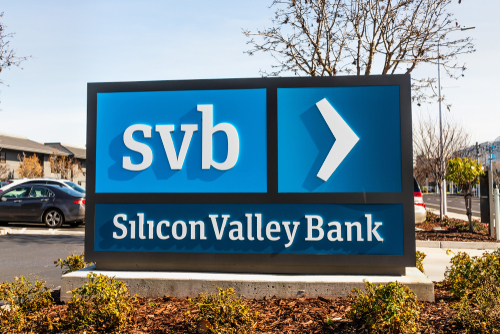U.S. Sen. Elizabeth Warren (D-MA) and U.S. Rep. Alexandria Ocasio-Cortez (D-NY) have expressed concerns about recent reports about Silicon Valley Bank’s relationship with some of its large depositors before the bank went under in March.

The lawmakers said that SVB catered heavily to the tech industry before its collapse and had accounts with nearly half of all venture-backed startups in the country. In addition, they said SVB held a large portion, $13.3 billion in deposits, with its 10 largest depositors. Further, they cited reports that said SVB began engaging in mutual backscratching arrangements with these VCs, providing perks, “coddling,” and “white glove treatment” to attract large unsecured sources of short-term funding.
“Silicon Valley Bank’s unusually cozy relationship with its clients increased the threat of contagion when the bank went under,” Warren said. “The American people deserve to know how these mutual backscratching arrangements developed, who benefitted from them, and what role they played in Silicon Valley Bank’s failure.”
The lawmakers sent a letter to 14 of SVB’s largest depositors, raising some of these questions and concerns.
“SVB directly invested in startups and venture funds, ‘provid(ed) lower-interest-rate mortgages for [tech startup] founders whom other banks wouldn’t lend to,’ gave VC firms lines of credit that allowed them to wire money to their tech startups faster, and sponsored industry ski trips, conferences, and fancy dinners,” wrote the lawmakers.
The letter was sent to Circle Internet Financial, BILL Holdings, BlockFi, Eiger Biopharmaceuticals, Gingko Bioworks, iRhythm, LendingClub, Oncorus, Payoneer, Protagonist Therapeutics, Roblox, Rocket Lab USA, Roku, and Sangamo Therapeutics.
“If these deposits were made by company executives and allowed by corporate boards in exchange for personal perks, that behavior raises potential concerns about whether they were meeting their fiduciary duties,” concluded the lawmakers. “According to an FDIC official, the mutually beneficial relationship between SVB and the VC and tech industry may have also undermined regulators’ efforts to sell SVB following its failure, as ‘banks had little time that weekend to get comfortable with SVB’s books, particularly when its borrowers and depositors were so closely intertwined.’”
The lawmakers are asking for a response to their questions by April 24.